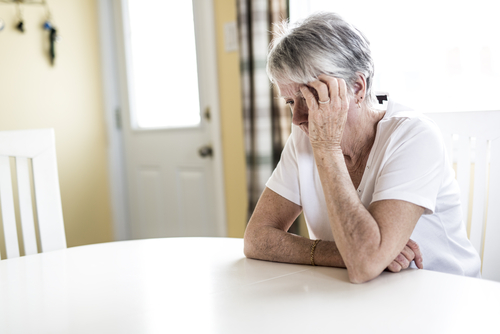Loneliness Linked to Worse Parkinson’s Symptoms, Study Finds

People with Parkinson’s disease who are lonely are more likely to have more severe symptoms and worse quality of life, a new study shows.
The findings highlight the importance of social connection for people with Parkinson’s, especially during the COVID-19 pandemic and its lockdowns.
The study, “Synergy of pandemics-social isolation is associated with worsened Parkinson severity and quality of life,” was published in npj Parkinson’s Disease.
Humans are, by nature, social creatures, according to the researchers, who noted that some scientists have argued that social connection is as fundamental a human need as food, water, and shelter. In the general population, social isolation and loneliness have been shown to have detrimental health effects — for instance, increasing the risk of depression and heart problems.
However, there has been little research into how loneliness specifically impacts people with Parkinson’s.
Now, a team of investigators have examined the connection between loneliness, symptom severity, and quality of life in 1,527 Parkinson’s patients, using data from an observational study (NCT02194816) sponsored by Bastyr University, in Washington, which focuses on science-based natural medicine. Participants in the study — which is still recruiting, and will be ongoing through 2030 — routinely fill out surveys about their lifestyle and mental and physical health.
Of relevance, Parkinson’s symptom severity was assessed using the Patient-Reported Outcomes in PD (PRO-PD) scale; higher scores on this scale indicate more severe symptoms.
Participants who responded “yes” to the question “I am lonely” reported approximately 55% higher PRO-PD scores over time. Those who reported worse satisfaction with their social life tended to have higher PRO-PD scores, as did those who reported more problems with social performance.
“Lonely people reported greater symptom severity for all 33 symptoms measured by the PRO-PD,” the researchers wrote.
Notably, the greatest effects manifested in the areas of “social withdrawal/loss of interest, motivation/initiative, depression, and anxiety,” the team wrote.
After statistical adjustments for age, gender, income, and years since diagnosis, participants who reported being lonely were found to have a PRO-PD score that was 327 points higher than similar participants who did not identify as lonely. In contrast, those who responded “yes” to the question “I have a lot of friends” had scores 169 points lower than those who didn’t. (The PRO-PD score reported on 33 symptoms, each rated from 0 – 100).
Of note, exercise is known to help ease Parkinson’s symptoms. Participants who reported exercising for at least 30 minutes per day, seven days per week, reported a PRO-PD score that was 299 points lower than those who didn’t. As such, the negative impact of loneliness was about as profound as the positive impact of exercise, in terms of symptom severity.
The survey’s respondents were asked to rate their quality of life (QoL) on a scale from one to five, with one as the lowest response. Whereas participants who reported high QoL scores were more likely to say they had many friends, patients who reported being lonely were more likely to also report low QoL scores.
Additionally, the results showed that participants who reported having an “excellent” quality of life were more likely to be in a romantic relationship. Specifically, only 9% of participants who reported an excellent quality of life were single. Participants who said their quality of life was “poor” were equally likely to be single or in a relationship.
“The fact that loneliness is associated with worsened QoL is not surprising but to our knowledge, this is the first time that this link has been elucidated in a PD [Parkinson’s disease] population,” the researchers wrote.
Importantly, this study’s design makes it impossible to reliably infer cause-and-effect relationships — while it is possible that loneliness directly causes more severe symptoms, it is also probable that loneliness influences, and is influenced by, confounding factors like anxiety and depression. More research is needed to understand the relationships between these factors, the researchers said.
Regardless, the results of this study imply that increasing social connections could help improve quality of life, and may ease perceived symptom severity, in people with Parkinson’s. As such, it may be beneficial for healthcare workers to encourage people with Parkinson’s to engage in more social activities.
“It’s called social prescribing, because you literally prescribe to your patients to be more socially connected,” Indu Subramanian, MD, study co-author and a neurologist at the David Geffen School of Medicine at UCLA, said in a press release.
These loneliness-abating strategies may be of particular importance in the current setting of increased isolation and social distancing due to the COVID-19 pandemic, the researchers said.
Of note, this study was conducted over a five-year period, from 2014 to 2019, by the researchers from Bastyr, UCLA, and the University of Washington. The most recent survey was completed in December 2019, before the COVID-19 lockdowns began.
The team recently sent out a new survey to the participants to collect data about how the pandemic has affected their symptoms.
To help people with Parkinson’s disease stay socially connected during the pandemic, Subramanian recently started a virtual support group, which meets several times a week.
“It’s actually grown into an international group of patients,” Subramanian said. “People have grown to enjoy and connect through it. Some people have told me it’s the only social thing they do at all.”






